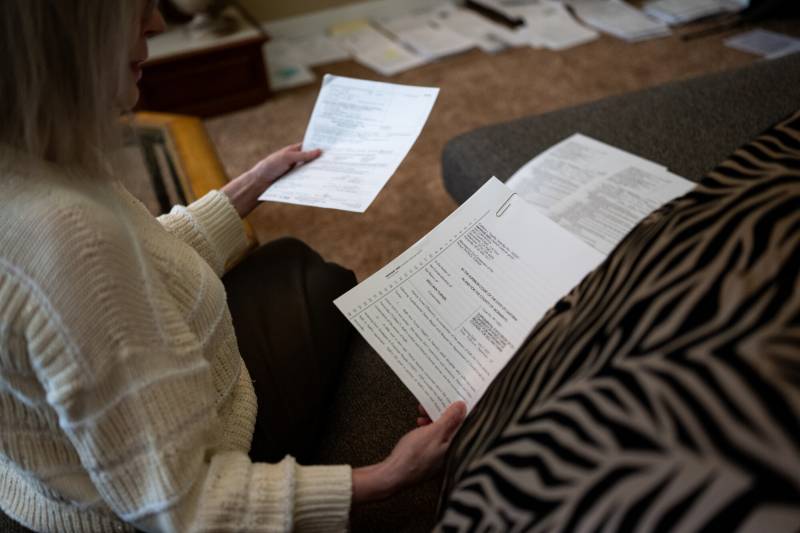Last year, KQED published an investigation of abuse allegations at a disability group home in the Sacramento area that fell within the jurisdiction of Alta Regional Center. At the time, the information about the center’s investigations into the allegations were not publicly available.
The KQED analysis of data from the Department of Developmental Services (DDS) showed that reports of abuse in disability group homes are somewhat common. From 2012 to 2022, the agency recorded at least 1,900 incidents of suspected abuse and more than 500 incidents of suspected neglect.
Judy Mark, president of Disability Voices United, a sponsor of AB 1147, said the additional transparency the bill calls for would help watchdog groups investigate and understand why these cases keep happening. “If we had that information, we would be able to see, ‘Oh, there is a pattern of problems at this time at this agency.’ Or, ‘Everything looked fine; how did you not see that these abuses were happening or that things were dirty or that people were getting hurt?’” she said.
Besides cases of abuse, Mark said the opaqueness of regional centers makes it especially frustrating for disabled individuals when they attempt to understand why they were denied services.
“All we know as families is that if you are at one regional center, you can get a service, but if you’re at a different regional center, you don’t,” Mark said. “We would be asking, like, ‘What are the consistent policies that you are applying toward individuals so that we know why somebody got a yes and another person got a no?’”
Centers push back
Regional centers fervently oppose the PRA requirement in the bill, claiming that they don’t have the staffing or resources to comply with it — despite a recent Los Angeles Times report that found regional centers left nearly $1 billion unspent in 2021–22. Doing so, the centers said, could also result in the release of private health information.
“Given the highly sensitive information maintained on each individual, and the potential for redaction errors, there is an inherent privacy risk every time a PRA is responded to,” said Amy Westling, executive director of the Association of Regional Center Agencies (ARCA), in an email. “This is particularly true when new staff without prior experience with the PRA would be responding to requests.”
Westling also pointed to the litany of disclosures that regional centers are already required to make publicly available online, including “information about policies, spending patterns, and boards of directors for each regional center.” Each regional center also transmits information daily to the DDS, which is subject to the PRA, she said.
But Haun, of Disability Rights California, said the bigger issue is that regional centers should be held to the same accountability standards as other publicly funded entities.
“Why should they be exempt from the same transparency requirements and expectations that all other entities are expected to comply with when they are using taxpayer dollars to carry out governmental functions?” she said.
Upcoming reform efforts
Advocates say the timing of the bill is crucial. Earlier this year, the California Health and Human Services Agency began working on the Master Plan for Developmental Services, an expansive effort to significantly transform how the state’s developmental disability system operates. The agency is convening stakeholders from across the system to develop a framework “for providing equitable, high quality, and person-centered services to all Californians with intellectual and developmental disabilities.” The plan is expected to be completed by March 2025.
The transparency that the bill’s PRA requirement would provide is critical to the master plan’s success, advocates argued.
“We can’t possibly do what we need to do to get that master plan done if we don’t have access to the information we need from the regional centers,” Mark said. “And that’s why we hope that Gov. Newsom will see this as just one step towards complete transparency and accountability over a system that spends over $15 billion a year.”
But Westling, of ARCA, said the goals of the master plan can be met without subjecting regional centers to the PRA. “If gaps in available data and information are identified through the master plan or other processes, we are happy to help identify potential solutions,” she said.
Haun added that increasing transparency for regional centers would also open the doors to independent studies, research, and policy analyses that could help dramatically improve the system. “There’s almost nothing like that now,” she said. “It’s critical to be able to improve the system and help the state know how to better invest the funds.”
She also believes that the bill goes beyond policy implications; a longer-term effect will be an increased sense of empowerment for people with developmental disabilities.
“When policies, rules, and information about how decisions are made that affect your everyday life are held from you, it is so disempowering,” Haun said. “Even if you wanted to engage or try to speak up or change things for the better, you don’t know how, and you can’t even begin to identify where or what’s even happening to you.”

